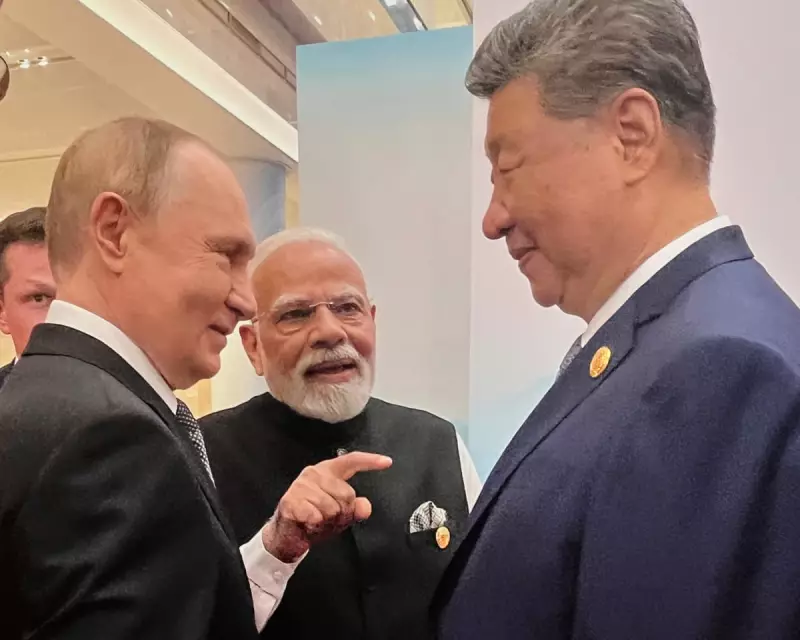
In a bold move that intertwines trade policy with global security, former US President Donald Trump is pushing the European Union to enact a new wave of aggressive tariffs targeting economic giants India and China.
According to sources, Trump's appeal to European leaders is not solely an economic gambit but a calculated geopolitical strategy. The overarching aim is to severely constrict Russia's ability to circumvent Western sanctions by applying intense pressure on two of its most significant trading partners.
A Strategy of Economic Coercion
The proposed plan would see the EU enacting substantial import duties on goods from India and China. Trump and his advisers argue that these nations are acting as critical economic lifelines for Moscow, providing everything from consumer goods to key technological components that help sustain President Vladimir Putin’s war effort in Ukraine.
This strategy represents a significant escalation in the use of trade as a tool of foreign policy, moving beyond direct sanctions on Russia to targeting third countries perceived to be enabling it.
European Reception and Global Implications
Initial reactions from within the EU are understood to be mixed. While some member states are sympathetic to the goal of further isolating Russia, others are wary of triggering a wider trade conflict with two of the world's largest economies. Such a move could potentially disrupt fragile European supply chains and inflate consumer prices, adding to existing economic pressures.
Furthermore, the proposal raises profound questions about the future of global trade dynamics and the potential formation of new, adversarial economic blocs. Analysts suggest that imposing these tariffs could push Beijing and Moscow into an even closer strategic alignment, potentially counterproductive to Western interests.
A Preview of a Potential Second Term
This intervention is being closely scrutinised as a potential preview of the aggressive and unilateral trade policies that could define a second Trump administration. It signals a continued willingness to leverage US influence to compel allies to adopt a more confrontational stance towards both adversaries and strategic competitors.
The coming weeks will be critical in determining whether Trump's argument gains traction within key European capitals like Berlin and Paris, or if concerns over economic stability and strategic autonomy will lead the EU to reject the proposal.





